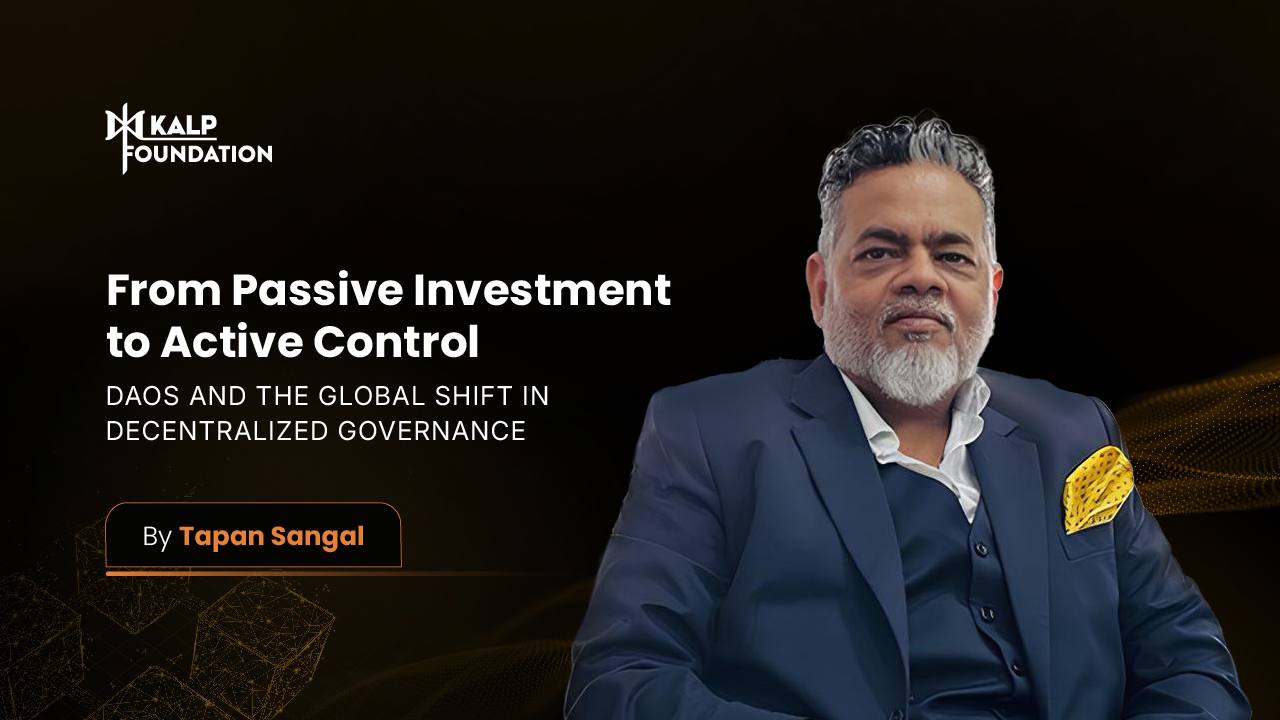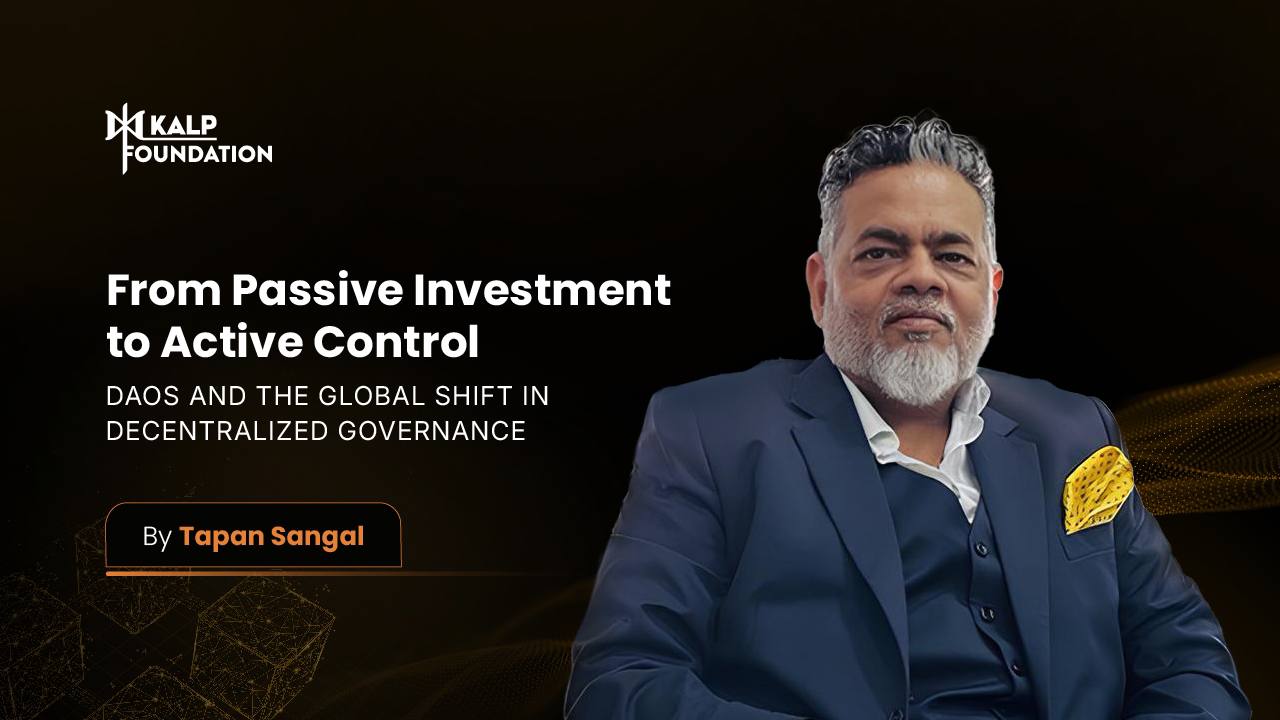
DAOs and the global shift in decentralized governance
By Tapan Songkal
The concept of “day-to-day control” serves as an important regulatory benchmark that distinguishes between investment and corporate structures. This principle determines whether an investment qualifies as a Collective Investment Scheme (CIS) or an investment contract. By checking whether the investor has operational control or has assigned it to a separate entity.
The global legal foundation of day-to-day regulation
Day-to-day regulatory principles are embedded in various legal frameworks around the world:
1. United States – Howey Test: Established by the United States Supreme Court in SEC v. W.J. Howey Co., this test determines whether an agreement constitutes Whether or not it is an “investment contract” based on the lack of day-to-day control It is managed by a separate entity. 2. India – SEBI Act: Section 11AA of the Securities and Exchange Board of India. Reflects the Howey test, using lack of day-to-day investor control as the main criterion for classification as a Collective Investment Scheme (CIS). 3. European Union – ESMA Guidelines AIFMD: Securities and Markets Authority of Europe has identified day-to-day discretion as a key differentiator between aggregate and direct investment. It emphasizes ongoing decision-making beyond the vote of ordinary shareholders. 4. United Kingdom – FCA Guide: The Financial Conduct Authority test determines whether an investor directly manages assets or merely participates in a scheme managed by an investor. another
5. Canada incorporates similar principles. This reflects a global consensus on the importance of investor controls in distinguishing individual investments from collective projects.
This global consistency reinforces that When investors lack control over their day-to-day investment management Such arrangements are likely to be classified as CIS or similar regulated structures. It is subject to more stringent regulatory scrutiny. Consistency across jurisdictions emphasizes the universal acceptance of investor controls as a fundamental principle of financial regulation.
How DAOs enable day-to-day control In decentralized organizational structures such as DAOs, blockchain technology and online governance redefine “day-to-day governance” through transparent, automated, and democratic decision-making mechanisms. That gives token holders real-time control. DAO-Based Voting and Governance System DAO enables token holders to jointly manage assets through smart contracts and online voting mechanisms. Key features include: :
1. Online Voting: An automated and tamper-proof voting system that executes results through smart contracts.
2. Transparency and Accountability: All transactions and decisions recorded in a public ledger and remain unchanged.
3. Comprehensive control mechanism: Token holders exercise their rights in day-to-day management and operations through:
o Voting on routine decisions o Participating in key financial decisions o Influencing business strategy o Approving or rejecting proposed changes
4. Participation: Token holders act as co-owners with the right to:
o Review financial records o Review asset performance o Oversee operations through voting
5. Role of the Moderator: Although the DAO may employ the Moderator, But their role remains limited and controlled by token holders who can:
o Restrict the caregiver’s actions o Direct the caregiver’s decisions o Replace or modify the caregiver’s role
6. Direct Access and Governance: Token holders will maintain:
o Rights to physically survey assets o Direct operational supervision o Ability to review management reports
For DAOs that operate in regulated sectors or have significant real-world assets A hybrid model that combines both online and off-chain components. Provides flexible solutions in these structures Token holders control the digital assets on a day-to-day basis. while some off-chain functions, such as legal compliance or property maintenance services Managed by a trusted intermediary These hybrid arrangements allow DAOs to meet regulatory standards while maintaining Decentralized ethics-
The concept of day-to-day control is globally recognized as an important regulatory principle for differentiating between investment structures that require heavy supervision and those that do not, through the use of DAOs. their innovation Blockchain technology and online supervision It allows token holders to exercise this control in a way that traditional investment structures do not. By providing a transparent decision-making framework democratic And it is automated, so the DAO can identify regulatory benchmarks for day-to-day control. It enables compliance while promoting decentralization.
In this sense, DAOs not only meet global regulatory expectations; but also defines new possibilities of meaning. It is also the “day-to-day control” of the digital age. This makes DAOs well-suited to deal with the complexities of the modern regulatory environment. It offers forward-thinking solutions for the governance of both. Digital assets and the real world-
The comprehensive governance mechanism implemented by the DAO ensures that token holders have a level of participation and authority in managing assets that goes beyond traditional investment structures. By empowering investors with the ability to make real-time decisions. Access to detailed information and direct operational supervision, the DAO will create an investment environment that is closely aligned with regulatory requirements for active investor participation and control.
As the regulatory framework continues to evolve, The decentralized and transparent nature of DAOs makes them a potentially compliant and innovative approach to asset management and corporate governance. DAO’s ability to give investors true day-to-day control over their investments It may set a new standard for what constitutes proactive management in the eyes of regulators around the world.
Disclaimer: This article is provided for informational purposes only. It is not offered or intended to be used as legal, tax, investment, financial, or other advice.
Source link
